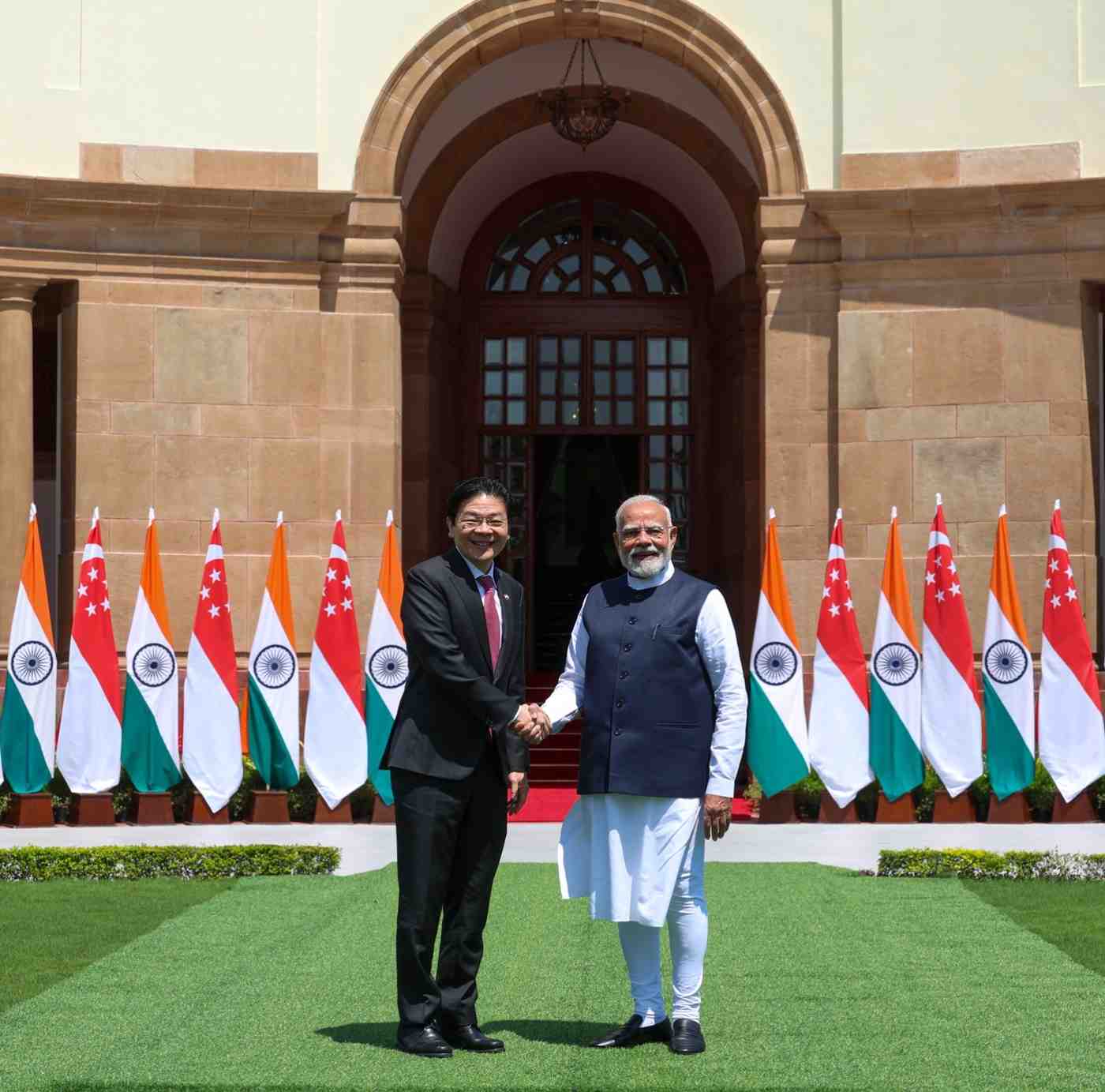
India and Singapore to fast-track review of trade pacts amid global tariff turbulence
NEW DELHI : India and Singapore have decided to fast-track the review of their Comprehensive Economic Cooperation Agreement (CECA) and Asean Trade in Goods Agreement (ATIGA) in a time-bound manner to accelerate bilateral trade, Prime Minister Shri Narendra Modi said on Thursday while addressing a joint press conference with his Singapore counterpart Lawrence Wong.
This is Wong’s maiden visit to India after he assumed office last year, and it coincides with the 60th anniversary of diplomatic ties between the two countries.
The decision to give bilateral commerce a fillip comes at a time when global trade flows are being reshaped by the new tariff regime under US President Donald Trump. India, which has been slapped with one of the world’s highest tariffs of 50% by Washington, is seeking to diversify its markets and strengthen regional economic partnerships to offset the impact. The country has identified 50 markets for the diversification.
Singapore, a major financial hub and gateway to South-East Asia, has emerged as India’s largest trading partner in the region and a key investor, making the CECA review crucial for sustaining momentum.
Wong said that the partnership between India and Singapore had become even more important in a world marked by uncertainty and turbulence.
On the scope of the bilateral ties, Modi said: “The partnership with Singapore has expanded beyond traditional sectors to cover advanced manufacturing, green shipping, skilling, civil nuclear cooperation, and urban water management.”
Modi said several Indian states are becoming active stakeholders in bilateral ties, citing the recent visits by the chief ministers of Odisha, Telangana, Assam, and Andhra Pradesh to Singapore, while Gujarat’s GIFT City has become a new bridge connecting the stock markets of both nations. Modi noted that the partnership on semiconductors signed last year has given a fresh push to research and development, with Singaporean firms taking part in India’s Semicon conference.
As per a government release, Singapore will also support setting up of a National Centre of Excellence for Skilling in Chennai to train manpower in advanced manufacturing. The two sides will deepen cooperation in artificial intelligence, quantum, and other digital technologies, Modi said, adding that the next round of the India-Singapore Hackathon will be held later this year.
Underscoring the multi-sectoral connections, Modi highlighted the success of the unified payments interface (UPI)–PayNow link, which now includes 13 more Indian banks, and said the new agreement on Green and Digital Shipping Corridors would boost green fuel supply chains and port clearances. He also inaugurated phase-2 of the Bharat Mumbai Container Terminal, built by Singapore’s PSA International, which will expand India’s container-handling capacity.
Singapore, Modi said, remains a vital pillar of India’s Act East Policy and a partner in boosting Asean (the Association of Southeast Asian Nations) and stability in the Indo-Pacific. He also thanked Wong for expressing solidarity with India after the recent terror attack in Pahalgam and for Singapore’s support in the fight against terrorism.
The renewed push to bolster trade ties with Singapore is seen as part of India’s wider strategy to mitigate risks from Washington’s tariff escalation. Trade experts said closer economic integration with South-East Asia could provide Indian exporters with alternative markets at a time when the US and China are hardening their trade positions.
“With Trump’s tariff moves disrupting global supply chains, India is looking to regional partnerships as a shield against uncertainty and a way to draw in capital and technology,” said Abhash Kumar, trade economist at Delhi University.
As per commerce ministry data, exports of goods from India to Singapore in fiscal year 2025 (FY25) were at $12.98 billion, while imports were at $21.29 billion, leaving India with a trade deficit of $8.31 billion. India’s exports in FY24 were higher at $14.41 billion, while imports were $21.20 billion, resulting in a deficit of $6.79 billion.
Key items in India’s export basket for Singapore include petroleum products, chemicals, ships and floating structures, along with electrical machinery, precious metals and electronic instruments. India imports a range of products from Singapore, including electronic components, computer hardware, coal and briquettes, plastic, organic chemicals, among other items.
“This trade pattern shows Singapore’s role as a hub for technology, energy, and shipping, and as a re-export centre linking India to global supply chains,” said Kumar.
